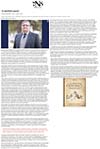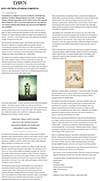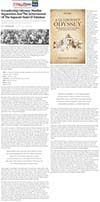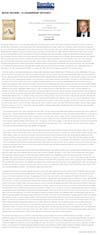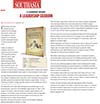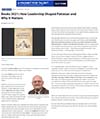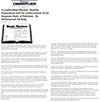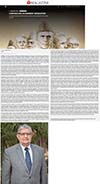A Leadership Odyssey
‘Dr Sikandar Hayat’s mastery of political theory, his analytical skills, and scholarship is such that the readers will engage and benefit from it even if they disagree….’
—TARIQ RAHMAN, Bloomsbury Pakistan (2021)
‘The author’s deep knowledge and keen understanding of the history is reflected in his ode to the separatist movement….’
—ARFA SAYEDA ZEHRA, The News on Sunday (2021)
‘Hayat has produced a work that deserves to be read by everyone interested in finding the intellectual and political roots of Pakistan.’
—ILHAN NIAZ, Dawn Sunday (2021)
‘Conspiracy theorists questioning the intentions of the Pakistan Movement's leaders will now disappear into the shadows as Dr Sikandar Hayat's masterpiece leaves no stone unturned in this book.’
—AKHTAR NAVEED SYED, South Asia (2021)
‘Finally, written by an eminent Pakistani historian, its argument that the creation of Pakistan was “essentially political, not religious, nor religiously motivated…” is a refreshing reiteration at a time when the debate about the nature of the state in Pakistan has again reignited.’
—YAQOOB KHAN BANGASH, Friday Times (2021)
‘Dr Sikandar Hayat offers a number of important perspectives on Pakistan’s journey from an idea to a nation, all of them rooted in the conviction that leadership can and often does play a decisive role in the life of any country.’
—JONATHAN ADDLETON, Global Atlanta (2021)
‘Overall, the book is a valuable contribution for the historiography of separatist politics and provides very interesting primary sources for the biography of the significant Muslim leadership.’
—UMBER BIN IBAD, Express Tribune-Magazine (2022)
‘Dr Hayat, in a successful scholarly endeavour, proved his thesis that Muslim separatism in India was based on historical processes… an “instrumentalist” choice of the makers of Pakistan, these six Muslim political leaders of British India.’
—MUHAMMAD IQBAL CHAWLA, Quarterly Journal of Pakistan Historical Society (2022)
‘Hayat’s volume will prove a pertinent textbook for flagging Pakistani/Muslim nationalism and by finding its due place in an ever-increasing historiography of decolonisation in South Asia.’
—IFTIKHAR H. MALIK, The Muslim World Book Review (2023)
 Weight in kg
0.51
Weight in kg
0.51
 Rights
World
Rights
World
 Year of Publication
2021
Year of Publication
2021
 Binding
Paperback
Binding
Paperback
 Pages
340
Pages
340



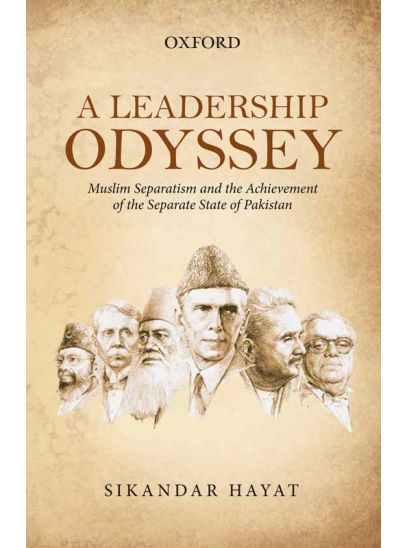
 Bulk Order
Bulk Order Request a Quote
Request a Quote